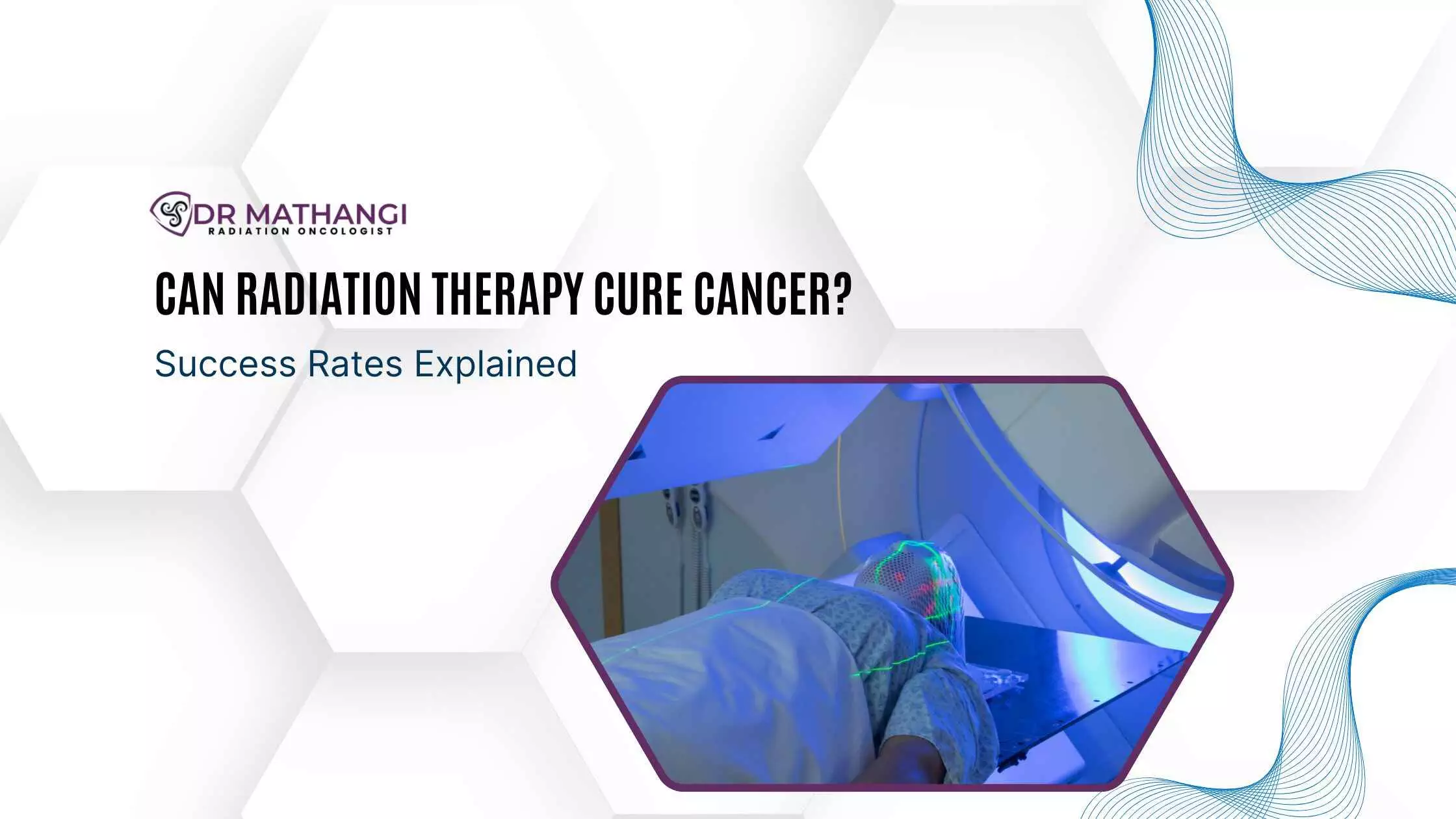
According to the American Society of Clinical Oncology (ASCO), over 50% of cancer patients receive radiation therapy at some point in their treatment journey, and in nearly 40% of cases, it plays a definitive role in achieving a cure. This striking statistic leads us to ask: can radiation cure cancer? In this detailed guide, we explore the curative potential of radiation therapy through the expert lens of Dr. Mathangi J, Senior Consultant and Head of Radiation Oncology at Gleneagles Cancer Institute.
Curative radiation refers to the use of high-energy radiation to completely eliminate cancer cells from the body. Unlike palliative approaches that aim to relieve symptoms, this form of therapy is designed with the intent of curing the disease. Under Dr. Mathangi’s supervision, advanced techniques like Stereotactic Body Radiotherapy (SBRT), RapidArc, and Image-Guided Brachytherapy are employed to deliver precise, high-dose radiation that maximizes tumor eradication with minimal impact on surrounding healthy tissue.
Absolutely. Localized cancer treatment is where radiation truly excels. For tumors confined to a specific region — such as brain tumors, head and neck cancers, and early-stage prostate or cervical cancers — Dr. Mathangi’s approach involves targeting the tumor directly using tools like TrueBeam STx. This allows for pinpoint accuracy, preserving nearby organs and structures.
Effective tumor control means not only destroying cancer cells but also preventing them from coming back. Radiation therapy offers excellent local control rates, especially when used in combination with surgery or chemotherapy. Dr. Mathangi’s department reports significantly improved survival rates in patients who undergo timely radiation intervention — a testament to the precision, planning, and patient-centered care she leads.
Remission rates refer to the percentage of patients in whom cancer has reduced or disappeared following treatment. For many cancers, including breast, prostate, and gynecologic cancers, radiation therapy has demonstrated high remission rates, especially when delivered in a multi-modality setting. Dr. Mathangi monitors every patient through periodic follow-ups to ensure that remission is maintained and side effects are effectively managed.
Radiation therapy often functions as an adjuvant therapy — a post-surgical treatment used to eliminate residual microscopic disease. Dr. Mathangi’s treatment plans often involve sequencing radiation after surgery or chemotherapy to reduce recurrence risk. In some cases, radiation is also used as a neoadjuvant (pre-surgery) approach to shrink tumors for easier removal.
For advanced or metastatic cancers, palliative radiation plays a critical role in improving quality of life. It helps relieve symptoms like pain, bleeding, or obstruction caused by tumors. Dr. Mathangi offers short-course, targeted radiation regimens that reduce symptom burden while preserving patient comfort and dignity.
Patients with localized cancers, early-stage malignancies, or residual microscopic disease post-surgery are excellent candidates for curative radiation. Even those with advanced-stage cancer can benefit from symptom-relief through palliative plans. With Dr. Mathangi’s extensive training in advanced techniques such as SBRT, SRS, and IGRT, patients receive individualized care that aligns with their diagnosis, goals, and overall health status.
Dr. Mathangi’s center is equipped with the Asia Pacific's first TrueBeam STx system, capable of delivering ultra-precise radiation. Her expertise in Stereotactic Ablative Body Radiotherapy, Deep Inspiration Breath Hold (DIBH), and Interstitial Brachytherapy ensures optimal tumor control with fewer sessions and reduced complications. This infrastructure positions her department as a regional leader in advanced radiotherapy.
So, can radiation cure cancer? The answer is yes — particularly when the disease is diagnosed early, appropriately staged, and treated with a customized, high-precision plan under an expert like Dr. Mathangi. Whether the goal is curative radiation, palliative radiation, or adjuvant therapy, the outcomes depend on choosing the right approach at the right time.
Patients and families should never underestimate the power of expert-led, technologically advanced radiation therapy in the battle against cancer. And with Dr. Mathangi at the helm, patients are never alone on this journey toward healing and hope.
Ready to take the next step? Submit your contact details at https://drmathangi.com/contact/ and our team will schedule your consultation with Dr. Mathangi. Your path to expert cancer care begins here.